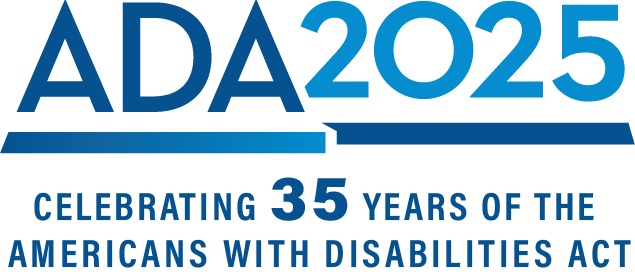The idea that every individual’s life has value is fundamental to the work of medical professionals. Yet too often, biases and misconceptions about disability can negatively affect the quality of care received by patients with disabilities.
For example:
- Research suggests that a medical professional’s preconceived notions about a patient’s disability can cloud medical professionals’ judgment on the effectiveness of starting or continuing life-sustaining treatments.
- Hospital policies, bioethical standards, and medical protocols can all too often be interpreted by medical professionals to limit and deny access to care for people with disabilities.
- A lack of effective protocols and training for medical professionals can lead to patients, parents, and other companions receiving inaccurate representations about the values of the lives of people with disabilities that are based on stereotypes or discriminatory quality of life assumptions rather than the best available objective evidence. These inaccurate representations may, in turn, lead to medical treatment decisions that are not as effective and discriminatory.
Access to organ transplants for people with disabilities
In recent years, a handful of high-profile cases have highlighted the additional scrutiny faced by people with disabilities, especially intellectual and developmental disabilities, who need an organ transplant. This additional scrutiny, especially when it is based on biases, stereotypes, judgments that a person with a disability will be a burden on others, or a belief that a person with a disability is less valuable, and not on current medical evidence or the best available objective evidence, may amount to discrimination. In response to these disparities, the majority of states have passed laws to ban organ transplant discrimination on the basis of disability.
In September 2018, the U.S. Department of Health and Human Services, Office for Civil Rights (OCR) received a complaint alleging that a doctor on staff at the University of North Carolina (UNC) Health Care System determined that an individual in need of a heart transplant was not a good candidate for the transplant simply because they had developmental learning disabilities and did not live independently. OCR helped facilitate a successful resolution, and in January of 2019, UNC Health Care agreed that the individual’s medical records would be amended to clarify they are eligible to be considered for placement on the transplant list.
OCR’s commitment
This is just one example of OCR’s ongoing work to address the disconnect between medical practice and the civil rights of people with disabilities. OCR enforces federal civil rights laws. These laws protect people with disabilities from being denied medical care on the basis of stereotypes, biases, judgments about their relative “worth,” a belief that they will be a burden on others, and value assessment tools that discount the value of their lives due to disability.
OCR protects rights by:
- Informing health and social service workers about civil rights laws, conscience and religious freedom laws, health information privacy, and patient safety confidentiality laws
- Educating communities about civil rights, conscience and religious freedom rights, and health information privacy rights
- Investigating civil rights, conscience and religious freedom, health information privacy, and patient safety confidentiality complaints to identify discrimination and violations of the law, and taking action to correct potential violations
OCR issued a fact sheet to help recipients understand their nondiscrimination obligations: Section 504 of the Rehabilitation Act of 1973 Final Rule: Section by Section Fact Sheet for Recipients of Financial Assistance from HHS.
The Center for Dignity in Healthcare for People with Disabilities
The Center for Dignity in Healthcare and Community Living for People with Disabilities at the University of Cincinnati Center for Excellence in Developmental Disabilities has been a key ACL investment since 2019 to address the health care disparities experienced by Americans with disabilities.
The center works to educate medical professionals about the civil rights and support needs of Americans with disabilities as they access routine and lifesaving care throughout their lives. Working with a coalition of five national partners, the center develops resources for medical professionals to address and prevent health care discrimination, including model policies and protocols. They also have resources developed in partnership with people with intellectual and developmental disabilities (I/DD) and their families on the most problematic areas, such as access to mental health and suicide prevention services, organ transplants, aging and end-of-life care, and prenatal diagnosis support.
A significant feature of the Center is its Community of Practice (CoP), a collaborative group focused on promoting fairness and equality for all individuals. The CoP meets monthly to develop practical resources and tools.
Additionally, the Center hosts the Changemakers Coalition, which supports young people with disabilities in their efforts to foster a more equitable society. This coalition encourages leadership and advocacy among youth, empowering them to contribute to positive societal changes.
National Council on Disability bioethics reports
In 2019, the National Council on Disability (NCD) issued a series of bioethics reports exploring how biases and assumptions in organ transplantation, physician-assisted suicide, genetic testing, quality-adjusted life years, and medical futility impact people with disabilities. Original research, stakeholder and scholar interviews, literature reviews, reviews of media reports, and legal analysis are used to examine each topic.

